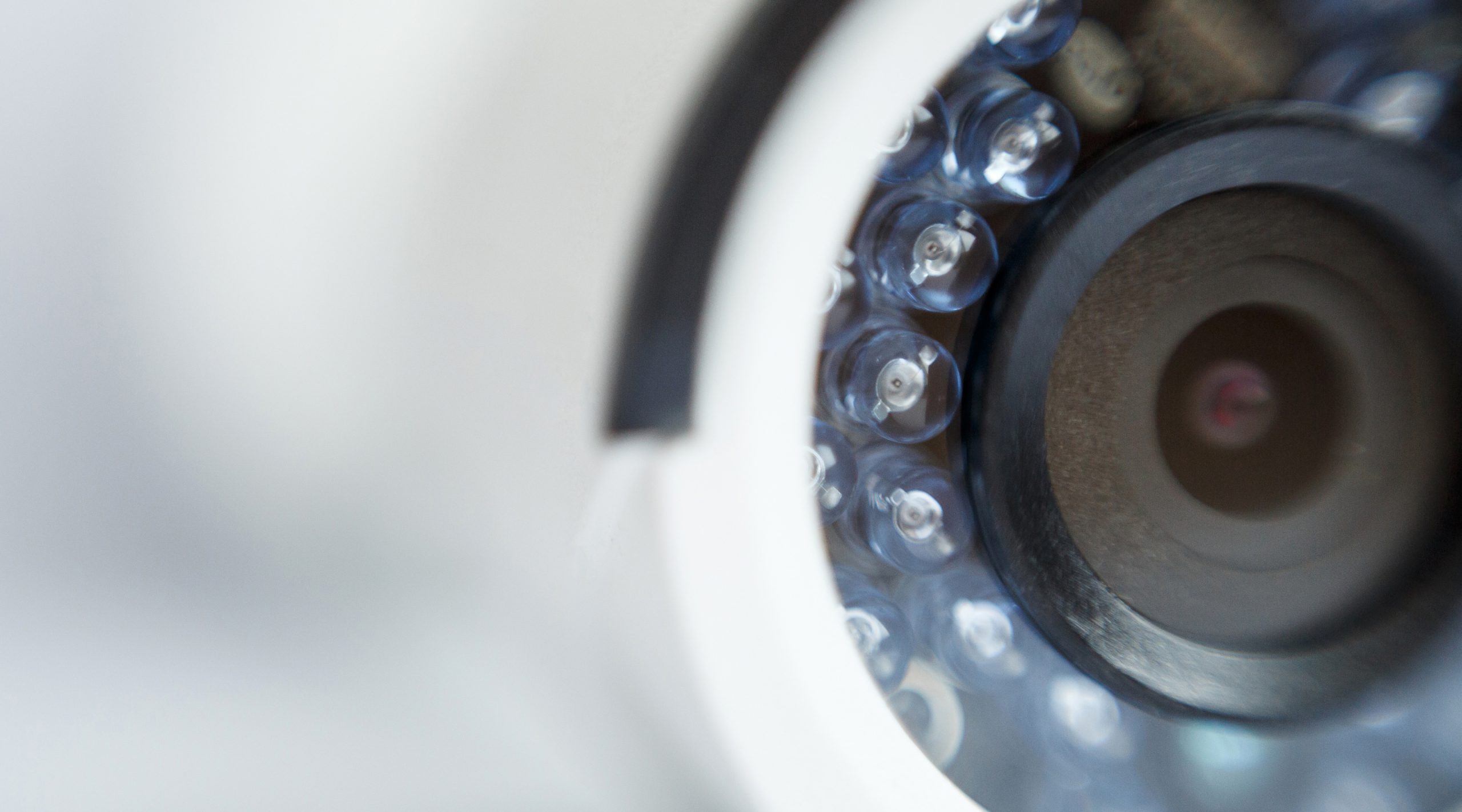IP CCTV – Return-on-Investment Or Just A Security Expense?

Was IP CCTV in place? In 2022, police forces across England and Wales received a total of 250,690 crime reports regarding burglary.
According to the Home Office Commercial Victimisation Survey (CVS) 2022, burglary incidents (including those of attempted burglary), were experienced by one in ten business premises across England and Wales. To put the figure in context, this equated to 40,000 affected premises. Somewhat alarming statistics!
Other data sources reveal that 95% of overall burglary cases (both domestic and business) remain unsolved. In the cases that are solved, only 3.1% of these then go on to secure a conviction.
Regardless of your individual view on the UK’s ability to fight crime, the figures highlight the need for taking ownership of the security of our commercial premises. However, this goes far beyond simply ensuring that doors and windows are impenetrable. The majority of burglaries are crimes of opportunity, therefore any investment made into boosting security measures must address the whole of the premises and not just the points of entry.
It is widely recognised that all good security schemes should now incorporate an up-to-date IP CCTV system, one that not only acts as a strong deterrent but will capture footage that can be used to assist in securing a conviction should a theft or burglary incident occur.
Specialists in the installation and maintenance of IP CCTV equipment, Technology Powered Services (TPS) has extensive experience of designing solutions to meet unique business needs. We understand that for many organisations the costs of installation are viewed purely as a security expense, but there is also an argument that the technology offers a significant return on investment (ROI) too.
Before we delve into the reasons behind this line of thought, let’s take an overall look at IPCC TV technology and what you need to be aware of to ensure your system keeps your business protected.
How Will an IP CCTV System Deter Burglars?
Strategically placed IP CCTV cameras make it practically impossible to break into a property without being noticed.
If a burglar, or burglars do decide to break in, the system will record their entry, the crime itself and their eventual exit, enabling this evidence to be used in court to secure a conviction should the opportunity arise.
How Will an IP CCTV System Make my Premises More Secure?
IP cameras have the ability to capture high-detailed images across expansive distances, allowing you to cover a large area with a minimal number of cameras.
As the perimeter of a site is quite often the very first line of security, the solutions deployed at its edge are crucial to an organisation’s overall level of protection. Varying degrees of camera resolution are available to enable clear viewing of the perimeter, ensuring you can accurately detect both people and vehicles coming and going from your site.
More advanced models are on the market that allow you to see beyond the visible spectrum; supporting detection, even within areas of poor visibility, challenging lighting conditions or absolute darkness – without the need for additional lighting sources.
One of the main benefits of IP cameras however is that they leverage standard internet protocol (IP) networks, allowing you to view and respond to live video via the internet from anywhere in the world. Software technology allows operators to centrally monitor and verify activities, making it possible for you to restrict access to identified or authorised individuals only.
Is my IP CCTV System Secure?
Whilst IP CCTV solutions undoubtedly make a premises more secure, an unprotected system can be at threat. Now considered part of the IoT network, IP CCTV systems are high-risk when it comes to cybersecurity.
According to researchers at American technology company Forescout Technologies, IP cameras rank amongst the riskiest of IoT devices that are connected to a Local Area Network. In its research, Forescout analysed over 19 million IoT connected devices deployed across business and industry, to establish the most perilous ones to connect.
The risk level was determined by considering the range and severity of vulnerabilities in the varying devices, taking three factors into account; the device’s configuration, function and behaviour. Ways in which the device could be abused if compromised was also measured, alongside the impact this abuse could have across the wider network.
The research team concluded that as IP cameras are commonly exposed to the internet and often secured with only a weak or generic default password (or in some cases no password at all), this resulted in them having easy-to-exploit, unpatched vulnerabilities.
How to Protect your IP CCTV System
Weak usernames such as ‘admin’ and easy to guess passwords like ‘123456’ allow attackers to scan for cameras that are online in order to try these login details and attempt to gain access. It is highly advisable therefore that any default manufacturer settings are changed and a strong password selected that incorporates a mixture of capital/lower case letters, numbers and symbols as these are far more difficult for a hacker to guess.
A further security measure is to select a camera system that offers Two-Factor Authentication (2FA). These models offer an extra level of security that can stop hackers in their tracks. 2FA allows you to request a passcode when you log into your account, in addition to your username and password. The passcode can be sent to a nominated phone, thus allowing only designated personnel to view and access the camera.
Regularly installing any software updates is also a crucial measure to guard against security threats. These can often be set to run automatically and will provide the vital protection needed to defend against any new cyber hazards that have been identified.
Saving Money Through Investment into IP CCTV Systems
A common misconception is that IP CCTV camera systems do not provide any form of return on investment (ROI) – the capital allocated to security and safety viewed purely as an outgoing cost.
It is impossible to tell how many potential intruders will be deterred by the presence of an effective security system. It is fair to say however that prevention is often the best way to avoid crime occurring.
Many burglaries, as stated earlier, are crimes of opportunity (as many as 47% overall) therefore it stands to reason that the more obstacles that can be placed in a would be burglars path, the more difficult and less appealing that prospective opportunity becomes.
The resulting losses from damage to premises, loss of goods, loss of money and equipment, or in some extreme cases, the risk of injury or threat to human life, whilst unquantifiable, should not be underestimated.
The availability for potential savings however is not just limited to external break-ins. IP CCTV systems are also particularly effective at providing footage to support or dispute internal incidents. Factory floors or areas that involve large numbers of personnel and machinery can present an interesting opportunity for unethical employees or sub-contractors.
Whilst many organisations have high safety standards and comprehensive training programmes, minor accident and injury claims can cost larger companies hundreds of thousands of pounds in wasted investigation time, employee absenteeism, insurance payouts and soaring premiums.
A reliable IP camera system, with cameras strategically located to view all areas of activity throughout the premises, can drastically reduce the number of ‘incidents’ that occur. All legitimate claims will be fully viewable on camera thereby keeping both the number of applications and corresponding premium levels to a minimum.
Conclusion
The capabilities of secure IP CCTV systems defy the argument that they are purely a security expense. Without a doubt their external presence acts as a deterrent to would-be intruders; offsetting the costs of damage to premises and loss of goods and equipment.
Internally, the systems have the ability to provide an accurate account of daily operations and the movement of personnel around a building, which undoubtedly helps to protect against fraudulent injury claims, particularly within larger organisations.
Without question, when combined both internally and externally, IP CCTV systems have the capability to reduce the potential for incidents of burglary, theft and dubious injury claims.
Do the resulting lower insurance pay outs and lack of sky-high premiums support the claim that IP CCTV has the ability to offer a significant ROI? We’d say it does.
Find out more about our IP CCTV services
TPS (Technology Powered Services) has an industry wide reputation for delivering exceptional infrastructure, connectivity and technological solutions. The company also offers a comprehensive range of Break-Fix, Testing and Maintenance services including reactive 24/7 Engineer Call-Out with guaranteed response times. For further information please call a member of the team on 0161 660 9974 or email sales@techpoweredservices.com

